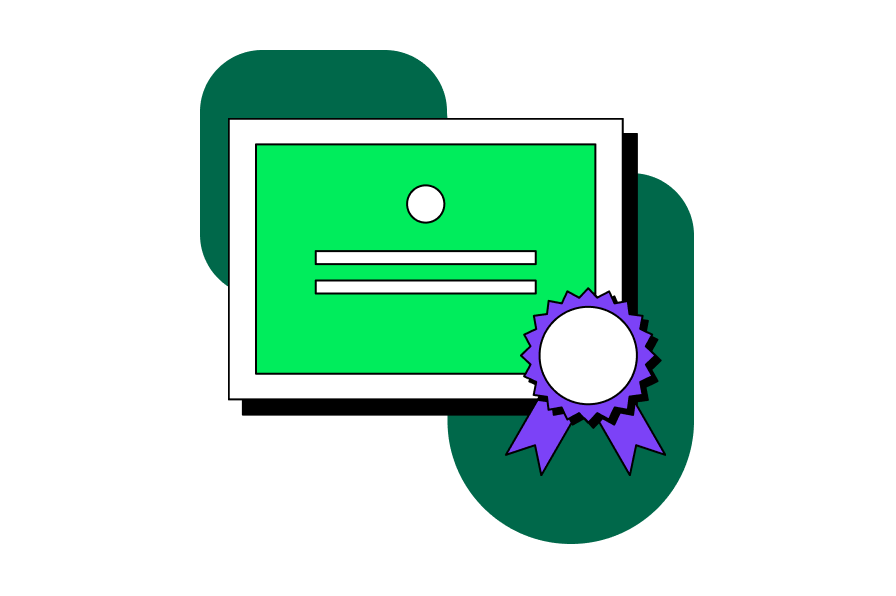Five Languages, One Goal: A Developer's Path to Certification Mastery
April 24, 2024 | Updated: March 6, 2025
MongoDB Community Creator Markandey Pathak has become a certified developer in five different programming languages: C#, Java, Node.JS, PHP, and Python. Pursuing multiple certifications equips developers with a diverse skill set, making them invaluable team members. Fluency across different programming languages enables them to foster platform-agnostic solutions and promote adaptability, collaboration, and informed decision-making, which are crucial for success in the global tech landscape.
To understand what led Markandey to take on so many certifications while managing a busy and successful career, we spoke with him to gain insights into the challenges and triumphs he faced.
What motivated you to pursue certification in multiple programming languages, and how has achieving such a diverse set of skills impacted your career?

C was the first programming language I learned, followed by C# and the .NET ecosystem a few years later. Transitioning to a new language like C# after knowing one was straightforward. I then delved into ASP.NET, JAVA, and subsequently PHP. Despite the differing syntax of these languages, I found that fundamental programming concepts remained consistent. This enlightening realization led me to explore JavaScript and, later, Python.
Such a diverse skill set made me a go-to resource for many senior leaders seeking insights. This versatility allowed me to transcend categorization based on programming ecosystems in the workplace, evolving my mindset to develop platform-agnostic solutions.
I believe in the adage of being a jack of all trades while still mastering one or more. I took on the challenge of discovering MongoDB drivers available for various platforms. I created sample applications to practice basic MongoDB concepts using specific drivers, and soon, everything fell into place effortlessly.
What tips or advice would you share with someone who looks up to your achievement and aspires to become a certified developer in multiple languages like C#, Java, Node.JS, PHP, and Python? How can they effectively approach learning and mastering these languages?
Before attempting proficiency in MongoDB across multiple languages, it's crucial to prioritize understanding fundamental concepts such as data modeling practices, CRUD operations, and indexes. Mastering MongoDB's shell, MongoSh, is essential to grasp the workings of MongoDB's read and write operations. Following this, individuals should select a programming environment they're most adept in and practice executing MongoDB operations within that ecosystem. Constructing a personal project can aid in practically observing various MongoDB concepts in action.
Utilizing resources such as MongoDB Certification Learning Paths, practice tests, and MongoDB Documentation is vital for excelling in certification exams. Additionally, it's advisable to undertake the initial certification in the programming language one feels most comfortable with. Reflection is key; saving or emailing exam scores enables individuals to identify areas needing improvement for future attempts.
With proficiency in C#, Java, Node.JS, PHP, and Python, how do you perceive the role of versatility in today's tech industry, especially regarding job opportunities and project flexibility?
Programming languages, very much like spoken languages, are merely a medium. The most important thing is knowing what to say. The tech industry depends on problems, and developers seek solutions to them. Once they have a solution, programming languages help make those solutions a reality. It’s not hard to learn different programming languages or even to master them. Knowing the basics of different programming ecosystems can give developers an edge regarding job opportunities. It makes them flexible and enables them to make crucial and informed decisions in choosing the correct tech stack or defining good architecture for solutions.
In your experience, how does fluency in multiple languages enhance collaboration and innovation within development teams, particularly in today's globalized tech landscape?
Fluency or even practical awareness about programming languages or ecosystems promotes versatility in problem-solving, facilitates cross-functional collaboration, supports agile development, enables integration with legacy systems, fosters global collaboration, reduces dependency, and empowers informed decision-making, all of which are crucial for staying competitive in today's globalized tech landscape.
As a MongoDB Community Creator, how do you leverage your expertise in these five languages to contribute to and engage with the broader tech community? What advice would you offer aspiring developers seeking to expand their skill set?
I aim to open-source my MongoDB-focused projects across various ecosystems, accompanied by detailed articles outlining their construction. Since these projects were designed with exams in mind, they serve as skill-testing tools for developers and comprehensive guides to the various components comprising certification exams. I advocate for developers to choose a favorite language and compare others to it, as this approach facilitates a quicker and more efficient understanding of concepts. Relating new information to familiar concepts makes learning easier and more effective.

The MongoDB Community Advocacy Program is a vibrant global community designed for MongoDB enthusiasts who are passionate about advocating for the platform. Our Community Creators Program welcomes members of all skill levels eager to deepen their involvement in advancing MongoDB's community and technology. We empower our members to expand their expertise, visibility, and leadership by actively engaging with and advocating for MongoDB technologies among users worldwide. Join us and amplify your impact within the MongoDB community!
Elevate your career with MongoDB University's 1,000+ learning assets. Access free courses and hands-on labs, and earn certifications to boost your skills and stand out in tech.